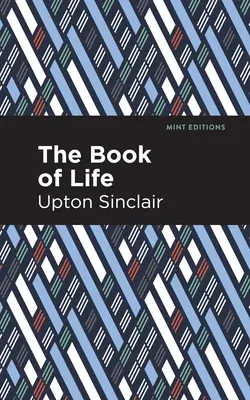Upton Sinclair's The Book of Life is a contains well founded advice
and consists of two parts. The first part, Book of the Mind, covers
spiritual topics such as faith, morality, and the subconscious. With
intense conversations on the definition of each as well as their
relationship and codependence on each other, Sinclair answers tough life
questions and provides many thought-provoking ideas. While the first
part of Sinclair's work concerns the intangibles in life, focusing on
matters of the mind, the second part of The Book of Life elects to
address physical topics. Book of the Body shares Sinclair's thoughts
and research on diets, featuring discussions on how people should
consume food, including fasting, and poisonous products. In this section
he talks about diseases as well, citing their causes and offering advice
on how to avoid them. Book of the Body also contains Sinclair's advice
on love, marriage, and sex. With these topics, Sinclair focuses on both
the mental and physical attributes of life, advising how to lead the
most fulfilling life possible. Though some of his ideas and advice are
dated, The Book of Life remains relevant and interesting to a modern
audience. First, though philosophy has progressed since Sinclair's time,
some human truths have remained evident and ever-present. Furthermore,
this historical novel reveals the culture and world Sinclair was writing
in, as well as allowing readers an intimate side of the esteemed
author's personality. The Book of Life serves as an encouraging work
for thought, action, and gives great insights for how Upton Sinclair
lived and what he believed. This edition of The Book of Life by Upton
Sinclair is now presented in a modern, readable font and features a
striking new cover design. With these accommodations, contemporary
readers are allowed unparalleled access to Sinclair's insight on love,
sex, health, faith, and morality.


